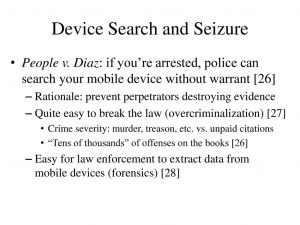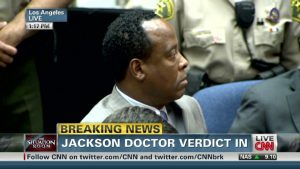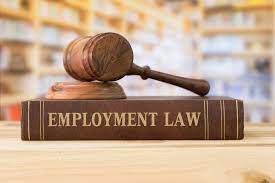Home » Law News
Category Archives: Law News
When Would You Need Virginia Employment Attorneys
Navigating the complexities of employment law can be a daunting task, whether you’re an employer or an employee in the state of Virginia. Employment laws are designed to protect the rights and interests of both parties, but disputes and legal issues can arise at any time. When conflicts emerge, having the guidance and expertise of a Virginia employment attorney can be invaluable.
In this comprehensive guide, we’ll delve into various situations where you might find yourself in need of a Virginia employment attorney. From wrongful termination and workplace discrimination to contract disputes and wage disputes, understanding when to seek legal counsel is crucial for safeguarding your rights and ensuring a fair resolution.
Wrongful Termination
One of the most common reasons individuals seek the assistance of employment attorneys in Virginia is wrongful termination. Virginia is an “at-will” employment state, which means that employers can terminate employees for any reason, as long as it is not illegal. However, there are exceptions to this rule, and employers cannot terminate employees for discriminatory reasons, retaliation, or in violation of employment contracts.
If you believe you have been wrongfully terminated, an employment attorney can help you gather evidence, assess the legality of your termination, and pursue appropriate legal action.
Workplace Discrimination
Workplace discrimination is another prevalent issue that can lead to the need for a Virginia employment attorney. Discrimination can occur based on race, gender, age, disability, religion, or other protected characteristics. If you believe you have been discriminated against in the workplace, an attorney can assist you in filing a complaint with the appropriate agency, such as the Equal Employment Opportunity Commission (EEOC), and represent your interests throughout the process.
Sexual Harassment
Sexual harassment is a serious issue that affects many employees across various industries. It can encompass unwanted advances, inappropriate comments, or other offensive behavior of a sexual nature. Victims of sexual harassment may require legal assistance to seek justice and ensure that their rights are protected.
An employment attorney can help victims of sexual harassment by guiding them through the process of reporting the harassment, pursuing legal action against the perpetrator or the employer, and seeking compensation for damages suffered.
Wage and Hour Disputes
Wage and hour disputes are common in the workplace. These disputes may involve issues such as unpaid overtime, minimum wage violations, or misclassification of employees as exempt from overtime pay. Virginia employment attorneys can assist both employees and employers in resolving these disputes by interpreting state and federal wage and hour laws and advocating for their clients’ rights.
Contract Disputes
Employment contracts, including non-compete agreements, severance agreements, and non-disclosure agreements, are becoming increasingly common in today’s workforce. When disagreements or breaches of contract occur, an employment attorney can help parties negotiate, mediate, or litigate to enforce the terms of the contract or seek remedies for breaches.
Family and Medical Leave Act (FMLA) Violations
The Family and Medical Leave Act (FMLA) provides eligible employees with job-protected leave for certain family or medical reasons. Employers must adhere to specific regulations regarding FMLA, and violations can lead to legal action. If you believe your FMLA rights have been violated or if you are an employer facing a dispute related to FMLA compliance, an employment attorney can provide guidance and representation.
Retaliation Claims
Employees who assert their rights under employment laws, such as reporting workplace violations or filing discrimination complaints, are protected from retaliation by their employers. Retaliation can take various forms, including demotion, termination, or adverse changes in working conditions. If you experience retaliation for exercising your rights, an employment attorney can help you pursue legal action to hold the employer accountable.
Whistleblower Claims
Whistleblowers play a crucial role in exposing illegal or unethical activities within organizations. However, they often face retaliation or other adverse consequences for coming forward. Virginia employment attorneys can assist whistleblowers in navigating complex legal protections, such as the Virginia Fraud Against Taxpayers Act and federal whistleblower laws, while protecting their interests and ensuring their safety.
Workers’ Compensation Claims
When employees suffer work-related injuries or illnesses, they are entitled to workers’ compensation benefits. However, disputes may arise over the eligibility for benefits or the extent of compensation. Virginia employment attorneys with expertise in workers’ compensation can help injured workers obtain the benefits they deserve and represent their interests in disputes with employers and insurance companies.
Employee Rights Violations
Employees have various rights protected by federal and state laws. These rights include the right to a safe workplace, the right to fair wages, and the right to reasonable accommodations for disabilities. When employers violate these rights, employees can turn to employment attorneys to enforce their legal protections and seek remedies for any harm suffered.
Conclusion
Employment issues and disputes can be emotionally and financially challenging for both employees and employers. Knowing when to seek the counsel of a Virginia employment attorney is crucial for protecting your rights and achieving a fair resolution to your workplace concerns. Whether you’re facing wrongful termination, workplace discrimination, contract disputes, or any other employment-related matter, an experienced attorney can provide the guidance and advocacy you need.
While this guide covers some common scenarios that may require the assistance of an employment attorney in Virginia, it is important to remember that every situation is unique. If you find yourself facing employment-related legal issues, it is advisable to consult with an attorney who can provide tailored advice and representation based on your specific circumstances. By doing so, you can better ensure a just and equitable resolution to your employment dispute.
Why Having a Criminal Defense Attorney is Vital

Having a criminal defense attorney is vital for several reasons:
Protect Your Rights
A criminal defense attorney can protect your constitutional rights and ensure that law enforcement officials follow proper procedures during the investigation and arrest. They can also ensure that your rights are not violated during the trial.
A criminal defense attorney can protect your rights in several ways, including:
Conducting a thorough investigation: An experienced criminal defense attorney will conduct a thorough investigation into your case to ensure that law enforcement officials did not violate your constitutional rights during the investigation or arrest. If they find any violations, they can file motions to suppress evidence or dismiss charges.
Ensuring proper procedures are followed: Your criminal defense attorney will ensure that law enforcement officials follow proper procedures when collecting evidence or making an arrest. They can review police reports and other documents to ensure that there were no procedural errors.
Challenging illegal searches and seizures: Your criminal defense attorney can challenge any illegal searches and seizures that violate your Fourth Amendment rights. They can file motions to suppress evidence obtained through illegal means.
Protecting your Fifth Amendment rights: Your criminal defense attorney can protect your right against self-incrimination. They can advise you on when to remain silent and when to answer questions during interrogations and can ensure that any statements you make are not used against you in court.
Ensuring a fair trial: Your criminal defense attorney will ensure that you receive a fair trial and that your rights to due process, a fair trial, and a jury trial are protected.
Provide Legal Guidance
A criminal defense attorney can provide you with legal guidance throughout the criminal justice process. They can explain the charges against you, the potential consequences, and the available defense strategies.
A criminal defense attorney can provide legal guidance in several ways, including:
Explaining the charges: Your criminal defense attorney can explain the charges against you, the potential penalties, and the legal process. They can help you understand the strengths and weaknesses of the prosecution’s case and your defense options.
Assessing the evidence: Your criminal defense attorney can assess the evidence against you and determine whether it was obtained lawfully, whether it is admissible in court, and whether it is sufficient to prove your guilt beyond a reasonable doubt.
Developing a defense strategy: Your criminal defense attorney can develop a defense strategy tailored to your specific case, taking into account the evidence, the circumstances of the crime, and your goals. They can advise you on whether to plead guilty, negotiate a plea deal, or go to trial.
Negotiating with prosecutors: Your criminal defense attorney can negotiate with prosecutors on your behalf to secure a plea deal that reduces charges, penalties, or even dismissal of charges altogether. They can also advise you on the consequences of accepting or rejecting a plea deal.
Preparing for trial: If your case goes to trial, your criminal defense attorney can prepare you for trial, including preparing witnesses, conducting pretrial motions, and developing a trial strategy.
Investigate Your Case
A criminal defense attorney can investigate the case against you, including gathering evidence, interviewing witnesses, and reviewing police reports. They can also consult with experts, such as forensic specialists or medical professionals, to build a strong defense.
A criminal defense attorney can investigate your case in several ways, including:
Gathering evidence: Your criminal defense attorney can gather evidence to support your defense. This may involve collecting witness statements, reviewing police reports and medical records, and examining physical evidence.
Interviewing witnesses: Your criminal defense attorney can interview witnesses to obtain their version of events, clarify details, and identify inconsistencies or weaknesses in the prosecution’s case.
Consulting with experts: Your criminal defense attorney can consult with experts, such as forensic specialists or medical professionals, to analyze evidence and provide expert opinions.
Reviewing legal precedents: Your criminal defense attorney can review legal precedents and case law to identify any legal issues that may be relevant to your case.
Conducting investigations outside of court: A Jacksonville Criminal Defense Attorney told me your criminal defense attorney can conduct investigations outside of court, such as obtaining private investigators to gather evidence, subpoenaing witnesses or records, and taking depositions.
Negotiate Plea Deals
A criminal defense attorney can negotiate with prosecutors to secure a plea deal that reduces charges, penalties, or even dismissal of charges altogether.
A criminal defense attorney can negotiate plea deals on your behalf in several ways, including:
Assessing the evidence: Your criminal defense attorney will review the evidence against you and assess its strengths and weaknesses. This can help them determine the likelihood of a conviction if your case goes to trial.
Identifying potential defenses: Your criminal defense attorney can identify potential defenses based on the evidence against you. If there are weaknesses in the prosecution’s case, they can use these as leverage to negotiate a plea deal.
Negotiating with prosecutors: Your criminal defense attorney can negotiate with prosecutors to secure a plea deal that reduces charges, penalties, or even dismissal of charges altogether. They can also advise you on the consequences of accepting or rejecting a plea deal.
Presenting mitigating factors: Your criminal defense attorney can present mitigating factors, such as your lack of criminal history or your willingness to cooperate with law enforcement, as a basis for reducing the charges or penalties against you.
Protecting your rights: Your criminal defense attorney can ensure that your constitutional rights are protected throughout the plea negotiation process. They can also advise you on the potential consequences of accepting or rejecting a plea deal.
Represent You in Court
A criminal defense attorney can represent you in court and present your defense to a judge or jury. They can cross-examine witnesses, argue legal points, and present evidence to support your defense.
A criminal defense attorney can represent you in court in several ways, including:
Arguing legal points: Your criminal defense attorney can argue legal points on your behalf, such as whether evidence was obtained lawfully or whether a legal standard has been met. They can also object to evidence or testimony that is inadmissible.
Cross-examining witnesses: Your criminal defense attorney can cross-examine witnesses to challenge their testimony, expose inconsistencies or weaknesses in their statements, or reveal their bias or motives.
Presenting evidence: Your criminal defense attorney can present evidence on your behalf to support your defense, such as witness statements, physical evidence, or expert opinions.
Delivering opening and closing statements: Your criminal defense attorney can deliver opening and closing statements to the judge or jury that summarize the evidence, highlight key points, and argue in favor of your defense.
Ensuring a fair trial: Your criminal defense attorney can ensure that you receive a fair trial by ensuring that the prosecution follows proper procedures, that your rights are protected, and that the judge or jury is impartial.
Overall, having a criminal defense attorney is vital because they can protect your rights, provide legal guidance, investigate your case, negotiate plea deals, and represent you in court. Without an experienced criminal defense attorney, you may not have access to these crucial services, which could significantly impact the outcome of your case.
The Biggest Court Cases of California in the Last Decade

Overview
The US has received its fair share of big cases, and California Court Law is no exception. A big case is defined as such due to the big number of following, perhaps a big amount of money involved, and the sensitivity of the issue in question. Issues such as abortion tend to divide the public down the middle. One’s stand on abortion depends on various factors such as religion, culture, socialization, and one’s beliefs on what liberty is.
Similarly, issues such as racism are complex and deep rooted. For example, a white person could easily be accused of racism when as a matter of fact, he is not. Similarly, black people have been disenfranchised and have historically been excluded from the economic and social mainstream opportunities. The Tuskegee experiment is a testimony to how deep racism and social injustice can go.
California is a favorable state to live in. The people are generally liberal. People come from all over the US, and all over the world, to try their luck. Hollywood and Los Angeles is a symbol of rising from an ordinary status to a global icon. In addition to that, the state is known for having immense business opportunities in different sectors of the economy. Some such as agriculture and entertainment do particularly well.
With the immense educational, business, and social opportunities, comes the possibility of conflict. Individuals and businesses in California, upon not agreeing on various critical issues, go to court. Now days in Los Angeles you can simply hire a Los Angeles ADR attorney and keep yourself out of court, but that has not always been the case. In other words, going to court signifies the failure of dialogue.
This article will look at the biggest court cases in California in the last decade.

Courts in California
The California Supreme Court is known for being diverse and conscious of different demographic and cultural groups. Variables that define the diversity of the court include political preferences, race, and sexual orientation. The California Supreme Court has been credited for coming up with a significant number of unanimous decisions. This gives the outcomes of such court cases more legitimacy and less controversy.
Besides the Supreme Court, the court case in California is generally strong. An increasing number of people trust the court system in seeking justice and compensation. In short, people who feel aggrieved can fairly seek the intervention of the court.
The Biggest Court Cases of California in the Last Decade

People v. Diaz
The People v. Diaz was decided on July 30, 2008 by the Court of Appeal, Second District, Division 6, CA. The main argument of the court case is on legality, or lack of it thereof, of getting information from phone text messages when a person is arrested.
In the case, a person is arrested and taken to the nearest police station. When the arrested person is being interrogated, an officer reads the text messages from the phone of the arrested person. He finds an incriminating message written 6 4 80 (an informed officer interprets this as the sale of ecstasy).
With that scenario then, there are a number of issues which arise from this particular case, and these include the following:
-Diaz invoked the Fourth Amendment stating that the search and seizure was unreasonable.
-There were feelings that a mobile phone could contain very person information which is of personal nature (and not related to crime)
The argument of the Supreme Court, California, was that the seizure of the mobile phone was not unlawful. The court stated that there were other incidences where a person was arrested, and the objects confiscated in order to preserve evidence. In other words, an arrest could as well allow a search.

United States v. Ronald Rodis
Two men from Orange County, California, duped the public by stating that they could modify their mortgage terms, and they did this by posing as a successful and reputable law firm. The two men were Ronald Rodis and Charles Wayne Farris.
By the end of the court case, Ronald Rodis had no option but to surrender his practice license. He had lost any legitimacy any way and with his image tainted, he had not met the minimum standards required for practice. In addition to that, he was sentenced to 41 months in prison. Moreover, Rodis had to pay a restitution amounting to $3.8 million.
Charles Wayne Farris received a 47 months prison sentence and was ordered to pay a restitution amounting to $3.5 million. Farris was working as the Managing Director of the law group. Because Farris is not a lawyer, he had to rely on the credentials of Rodis who was a lawyer, and had a valid license.
The two defendants had set up Rodis Law Group. They had realized many people were struggling with mortgage payments in the year 2008 and 2009. The two offered home owners an opportunity to negotiate their terms of payment in order to ease their burden of payment. Little did they know that they were creating more problems.
Depending on the severity of the case, the defendants would charge a cost in the range of $3,500 and $5,500. In the year 2008 and 2009, many home owners were facing the harsh reality of foreclosure, and they needed urgent assistance in order to save their property.
Rodis made use of radio adverts in order to reach out to as many homeowners as possible. He stated that his law group had experienced attorneys who would help in lowering the interest rates of the home owners and in some cases, lower the principal amount.
The reality on the ground was that they were not in a position to assist the struggling homeowners, and they were just defrauding them. It was just a tele-marketing operation. It was all a lie, all along. It is estimated that by the end of the scheme, 1500 people had fallen victim to their fraud, losing a total of $9 million.
The defendants did not disclose the name of the true owner of the scheme, even after much persistence from the authorities. The mastermind and the true owner of the scheme was Bryan D’Antonio who had previously carried out a medical billing fraud. He received a jail time of 97 months after pleading guilty to the fraud.

California v. Murray
The court cases revolving around celebrities receive a lot of attention. In fact, such celebrities record an increase in sales at that particular time of the court case, and when the case is fresh in the minds of the people. Such court cases are followed, not just in the US, but also globally.
The court cases revolving the fans are compounded by the influence of fans that stand in support of their celebrity. In most cases, such fans wait outside the court case and wait for the outcomes of the proceedings. The fans expect a judgment in the favor of the celebrity and they try to influence the outcomes through sensationalism. Whereas American judges can survive the onslaught of the fans, it is not the same in some countries where judges are threatened.
On June 25. 2009, the world came to a shock when it was reported that Michael Jackson had died. In that night, Michael Jackson was intoxicated with benzodiazepine and propofol. The medics arrived at the scene, treated the celebrity, but he soon died at Ronald Reagan, UCLA Center.
The person of interest in that case was Conrad Murray, his personal doctor. A computer forensic expert from the DEA obtained some evidence from Murray’s iphone. It was found out that Michael Jackson had a lot of trust in Conrad Murray to an extent of trusting him with his life, and could let him make any decision he deemed fit.
Michael Jackson had a very busy life. He was booked for shows, not just in the US, but all over the world. His life was full of rehearsals. Whereas the success in his music career was not in doubt, it took a heavy toll on his personal life. For example, he faced many nights of insomnia.
This is where Conrad Murray came in. He had to make the pop star sleep and get enough rest for the purpose of upcoming engagements. Murray told the court that Michael Jackson had to take drugs in order to sleep, and depended on this as much. In the aftermath of the death of Michael Jackson, Murray was taken to a court in Los Angeles, California.
Murray defended himself by stating that he had made attempts to wean off Michael Jackson from depending on sleeping pills. The jury deliberated for 8 hours. Consequently, Murray was found guilty of involuntary manslaughter and was to serve 4 years in jail. His license in Texas was revoked, and his licenses in Nevada as well as California were suspended. Murray served two years of the four, thereby benefiting from parole. Joseph Jackson, Michael Jackson’s father, filed charges against Murray claiming wrongful death, but would later drop the charges.
Attempts to protect Murray were made by his attorney throughout the proceedings. Whereas the attorney thought of appealing the court verdict, a lot of emphasis was placed in reducing the jail term that Murray was facing, and the attorney succeeded in this.
The death of Michael Jackson continues to elicit a lot of emotions to the present day, with the American and global community torn down the middle. On one hand, there are those who argue that Murray was simply doing his work, and that it is Michael Jackson, himself, who asked for sleep aid. On the other hand, there are those who cry foul over the possibility that Conrad Murray behaved unprofessionally.

The Golden State Killer
The investigations started way back in 1970s when California received various complains involving crime. By this time, the crime incidents were attributed to different people. As it is the case anyway, a suspect is going to make a mistake, and his name will start popping up in the list of suspects that authorities prepare and update. The following were the characteristics that define the most likely suspect:
-White male
– 5 ft 10 or thereabout
-Blood type: Type A
-Strong physical agility
-Brutal sex
-Preference for prostitutes
-Hates women
-Probably understands how the law enforcement works
In most cases, serial killers start their crimes at a time when the technology is not overly sophisticated. But by the time they mature in their acts, the technology is advanced. In the case of Joseph DeAngelo, the authorities uploaded a DNA profile, and Joseph DeAngelo was the main suspect. With authorities strongly suspecting him, they collected his DNA sample from a garbage can, and another DNA sample from his door’s handle.
The arrest of Joseph DeAngelo would come in 2018 after years of dodging the authorities. Joseph DeAngelo made a deal with the prosecutors to admit to murders in order to be saved from a death penalty. For his cooperation, he received life in prison instead. The judgement was read by Judge Michael Bowman. In his case, there is no possibility of applying for parole. Joseph DeAngelo apologized to “everyone Ive hurt.”
The case of Judge Michael Bowman is an example of the many cases in the US which involve serial crimes. Such crimes are difficult to manage as they often involve a sociopath. Such individuals have mastered the art of getting away with crime.
Such crimes are described as being performed by people who are without a soul. For example, in the case of Joseph DeAngelo, he blamed an inner person known as Jerry who pushed him to commit the murders. He says that he tried to get him out of his life, without any success. The acts of serial killers gravely affect the lives of individuals, and by extension, their families.
Conclusion
The significance of landmark and big court cases is that they set precedence. The cases that come after often cite such cases. Another significance of the landmark court cases as that the sanctions given as a result of wrong action are an act of deterrence. In other words, future crimes are prevented. Overall, big cases in California offer a research and learning platform of the issues which affect the people of California the most.
What’s the difference between a DWI and a DUI?

One obvious difference between DWI and DUI is the acronym. DWI stands for driving while intoxicated. DUI stands for driving under the influence. In a few states, the terms OUI for operating under the influence or OWI operating while intoxicated are used. But what are other differences between DUI and DWI?
The Threshold
The standard for DUI is set by the state. For example, in the state of Texas, a DUI ticket can only be issued to someone under the age of 21. And it will be issued to any “minor” under 21 who has blood alcohol levels below the legal limit of 0.08 but over 0.02. In zero tolerance states, anyone under 21 with a breathalyzer value over 0.0 can be charged with DUI.
In Dallas, Texas, a DWI refers to someone over 21 who is either driving while clearly impaired or has a blood alcohol level over 0.08, and you would need a Dallas DWI attorney. First time offenders may even see a driving while intoxicated charge downgraded to DUI so that their lives aren’t ruined. Fortunately, a driving while intoxicated charge cannot be compounded by a DUI offense.
In many states, you can get a ticket for DUI based on symptoms rather than evidence. For example, you could get a DUI ticket if you fail a field sobriety test or were witnessed driving erratically. If you’re just tired or had trouble seeing, a blood test taken shortly after your arrest may exonerate you. Yet you could still be charged with reckless driving.
Note that refusal to take a breathalyzer or blood test can result in suspension of driving privileges. This is especially true in “implied consent” states like California. In California, refusal to take a breath test when ordered will result in a mandatory, twelve month driver’s license suspension.
The Wider Definition
While DWI or driving while intoxicated may include drunk driving, the category was created to allow for the arrest of those who were impaired by something other than alcohol. For example, someone who is driving while high on cannabis could be charged with driving while intoxicated. The impairment could be due to legal or illegal substances. It doesn’t matter to the courts if you’re impaired by prescription painkillers, medical marijuana or too much cold medication. The point is that you were driving while incapable of safely operating the vehicle.
Note that you can be charged with drug offenses if you were found to be impaired due to illegal drugs. That means you could be hit with both DWI and criminal drug possession charges or a related charge. If you’re suspected of being under the influence, police may call in a drug recognition expert or DRE to determine if you are indeed under the influence of something. You’re legally required to cooperate with their additional tests. Test positive for a controlled substance, and you can be charged with DWI and a variety of other charges.
It is almost impossible for police to prove a DWI without physical evidence, and that is one reason why it is generally considered worse than DUI. That’s why a DWI never leaves your driving record, though it may no longer drive up your auto insurance rates after a few years.

The Penalties
In many states, a DUI is less severe than a DWI. In Texas, the penalties for DUI include a fine of up to five hundred dollars, being ordered to to forty hours of community service, sent to mandatory alcohol awareness classes and suspension of their driver’s license for up to sixty days. However, juveniles under the age of 18 could be charged with both a DUI and given additional penalties for under-aged drunk driving.
Penalties for DWI in Texas include larger fines, suspension of one’s driver’s license for several months, and even prison time. Think six months without driving instead of two. In other states, DUI and DWI penalties are similar. But if you’re both drunk and high, expect additional penalties.
Know that there are aggravating factors that can result in more serious penalties. For example, driving drunk with a child in the car can result in additional penalties. Driving with a blood alcohol level over .15 percent can result in additional penalties. And prior DUI and DWI convictions will result in a harsher sentence. Know that the judge can take DWI and DUI offenses committed in another state into account when sentencing you.
The Long-Term Consequences
Both DUI and DWI result in a number of consequences. You could be ordered to install an ignition interlock device that prevents you from starting the car without going through a breathalyzer test. In both cases, your conviction will increase your auto insurance rates. However, in jurisdictions where DWI is more severe than DWI, your auto insurance rates will skyrocket because of the perceived greater risk you pose as a driver.
If you are in an accident and found to have been DUI or DWI, the accident will be considered your fault. This means your insurance company will not pay for any property damage or medical bills caused by the accident. That is why a car accident caused by driving intoxicated or drunk can wipe you out financially. If you’re in an accident and found guilty of a more severe charge of DWI, your insurance company may simply drive you, especially if it is a repeat offense.
The Process of Getting Your License Back
In many states, DUI and DWI will result in loss of your driver’s license. A second offense will likely result in jail time and/or probation. Once you complete your sentence and pay your court costs and fines, you can work toward getting your driver’s license back. Expect to attend defensive driving courses. And if you’ve had two offenses or a DWI conviction, you may be forced to attend treatment sessions for your addiction. That’s especially true if you’ve had other drug or alcohol offenses or are under 21. This could be anything from attending AA meetings to being ordered into a residential treatment program.
Summary
In general, driving while intoxicated is as bad if not worse than DUI. A driving while intoxicated offense has similar penalties like fines and jail time, but they are generally more severe.

